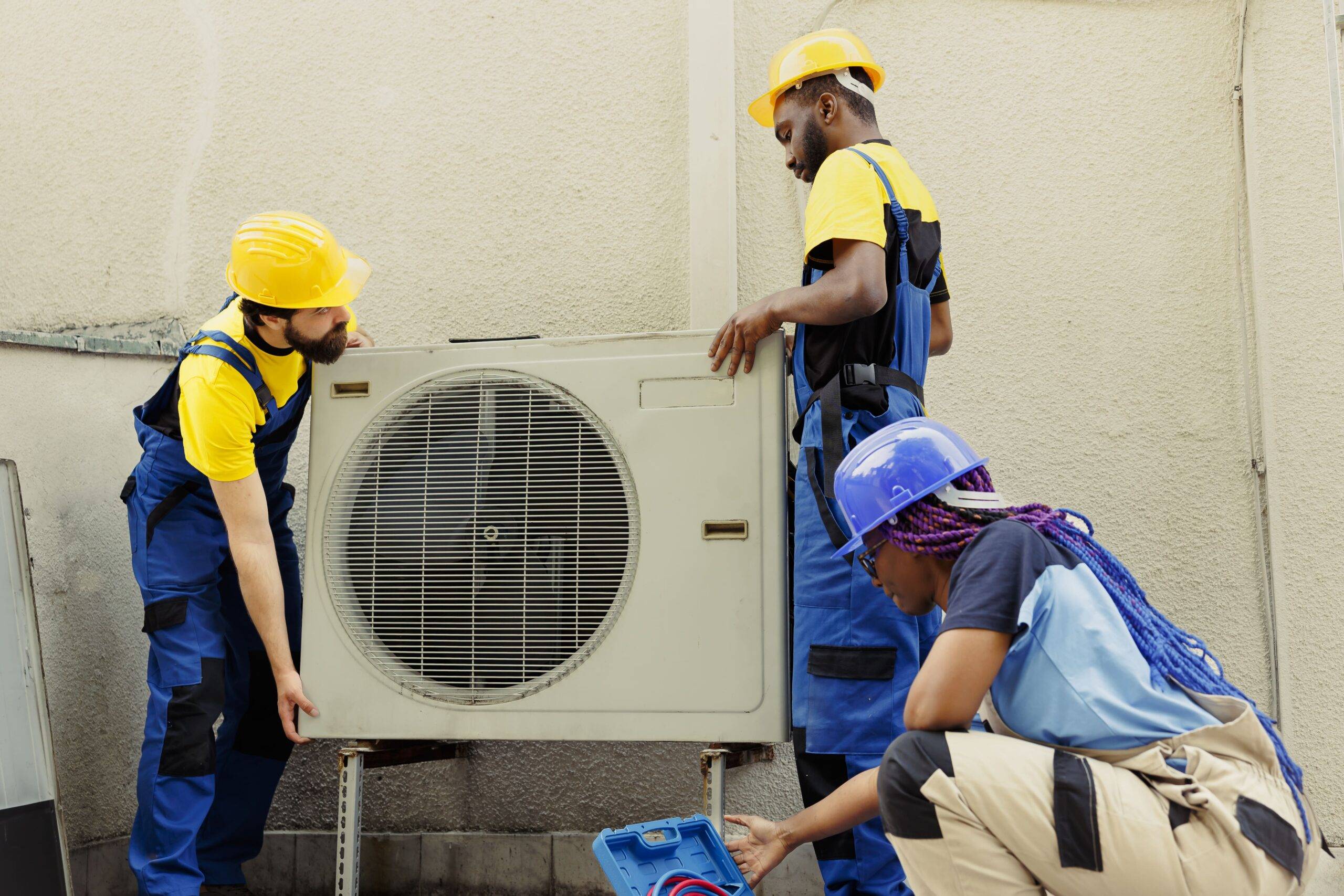Repair vs. Replace – Explain the HVAC Dilemma and When to Choose Each option.
When your HVAC system, that reliable workhorse ensuring year-round comfort, starts showing signs of trouble – perhaps lukewarm air, unusual noises, or soaring energy bills – a critical decision arises: repair the current unit or opt for a complete replacement?
This is not an easy decision to make. In the near term, a repair can save you money and provide a speedy fix. But even if it costs more up front, a replacement can improve comfort, dependability, and efficiency over time. So, how do you handle this HVAC conundrum? To assist you in deciding, let’s dissect the important elements.
When Repair Might Be the Right Choice:
Repairing your HVAC system can be a viable option in several scenarios:
- Younger Systems: If your unit is relatively new (less than 8-10 years old for furnaces and 10-15 years for air conditioners) and has been well-maintained, a repair is often the most cost-effective solution.
- Minor and Isolated Issues: If the problem is a single, identifiable component that can be replaced without significant labor costs – like a faulty capacitor, a loose wire, or a dirty flame sensor, – repair is likely the way to go.
- Affordable Fix: Repairing makes financial sense when the cost is low relative to the unit’s value and remaining lifespan. However, if the repair exceeds 50% of a new unit’s cost and the system is nearing its end, replacement is likely a better long-term investment.
- No History of Frequent Breakdowns: If this is the first significant issue your relatively young unit has experienced, a repair might be all it needs to get back to reliable operation.
When Replacement is the Better Long-Term Solution:
While a repair can seem appealing in the short term, there are several situations where replacing your entire HVAC system is the more sensible and cost-effective decision in the long run:
- Older Systems Reaching the End of Their Lifespan: Once your furnace or air conditioner reaches or exceeds its typical lifespan, it’s more prone to frequent breakdowns, reduced efficiency, and costly repairs. Investing in a new, more efficient unit can save you significantly on energy bills and prevent future headaches.
- Frequent and Costly Repairs: Multiple annual HVAC technician visits for recurring problems, with repair bills mounting, strongly suggest a failing system nearing replacement.
- Decreased Efficiency and Increased Energy Bills: Older HVAC systems lose efficiency over time. If your energy bills have been steadily rising despite consistent usage, a new, high-efficiency unit can provide substantial savings on your monthly expenses.
- Outdated Refrigerant (R-22): Older AC units using the phasing-out R-22 refrigerant face increasingly costly leak repairs due to its scarcity. Upgrading to a system with environmentally friendly refrigerant is a better long-term solution.
- Uneven Heating or Cooling: If you experience hot and cold spots throughout your building, it could indicate that your current system is no longer adequately distributing air, and you need to buy a new system.
- Desire for Improved Comfort and Features: Newer HVAC systems often come with advanced features like smart thermostats, zoning capabilities, and improved air filtration, offering enhanced comfort and control.
- Boosted Efficiency, Lower Costs: Upgrading to a modern, high-SEER or AFUE HVAC system offers significant long-term energy savings and helps reduce your environmental impact compared to an older, inefficient unit.
Consult a Professional:
The best method to decide whether to replace or hvac repair your HVAC system is to speak with a trustworthy and skilled HVAC expert. They can perform a comprehensive inspection, provide an accurate diagnosis, give a fair evaluation of the unit’s general condition, and make well-informed recommendations depending on your budget and particular circumstances.
Don’t let a malfunctioning HVAC system leave you in discomfort. By carefully considering these factors and seeking professional advice, you can make the right decision for your home and ensure comfortable temperatures for years to come.

